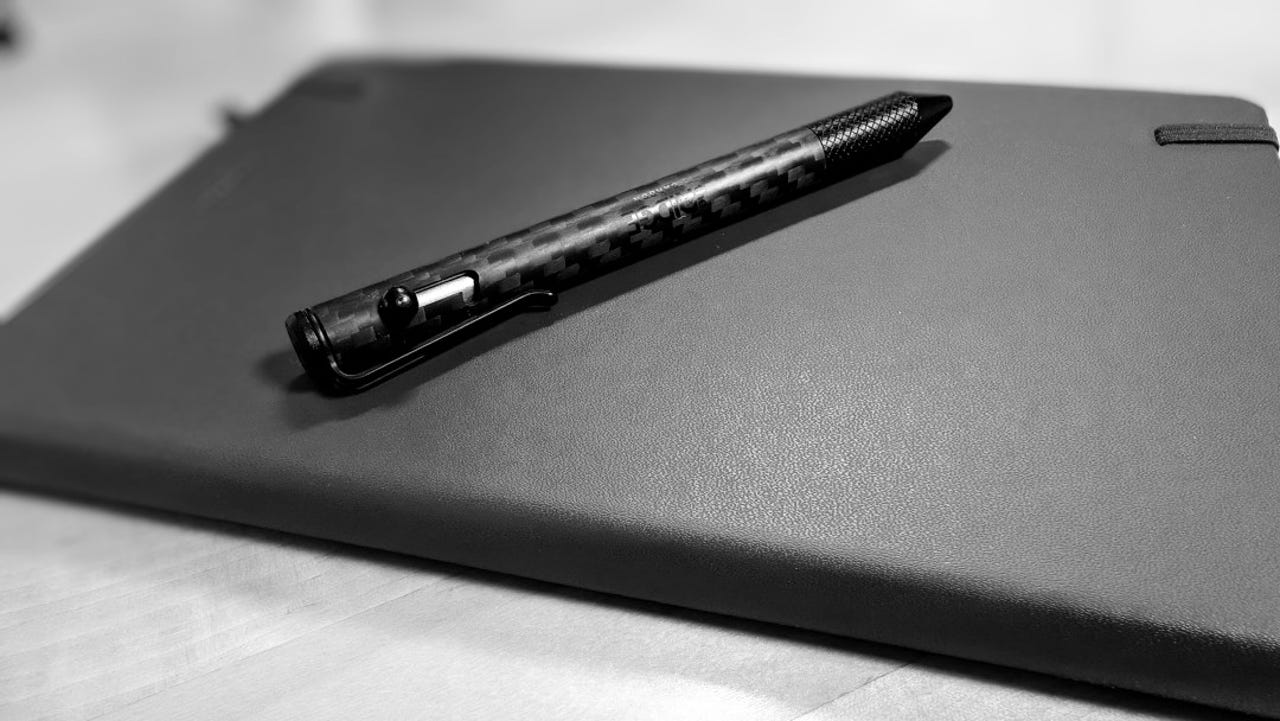Four journal apps that are secure and easy to use

As a writer, I'm used to spilling copious amounts of words onto pages every day. But sometimes I forget one of the most important bits of writing I can do is in the form of journal entries. With these entries, I can keep track of my mental well-being, achievements, goals, and ideas.
In other words, keeping a journal is an important piece of the writing puzzle.
Also: How to use the iPhone's new Journal app on iOS 17
Although I don't journal daily, one thing that has become important to me is protecting these thoughts behind a password. It's not that I have deep, dark secrets to keep. But I'll sometimes need to jot down something for my eyes only or maybe even an idea for a new book I don't want anyone seeing.
When such events happen, I turn to one of four journaling apps. These apps make it easy to take down my thoughts and secure them behind a password. Let's dive in.
1. Mini Diary
Mini Diary is a Linux app (available for free and installed via Snap) that doesn't include many features. However, the app does an outstanding job of keeping my thoughts protected behind a master password. Once you install this app, you secure it with a password. Anytime it is opened, the password is required.
Also: The best VPN services (and how to choose the right one for you)
Mini Diary includes a calendar, a search, minimal formatting for journal entries, and not much more. With Mini Diary you can create one journal entry per day that can be as long or short as needed. The other features found in Mini Diary include word count, import/export, and statistics. Mini Diary is a great app for Linux users who want something simple to keep track of their daily thoughts and events, but don't want to resort to the command line or a more complicated piece of software.
Mini Diary can easily be installed on any Linux distribution with Snap support.
2. Day One
Day One is a free journaling app for MacOS. It's also one of the few diary apps you can get for your Mac that includes password protection and doesn't require an in-app purchase to do so. Day One has just enough features to set it apart from Mini Diary, such as filters, support for attachments, tags, templates, favorites, and more.
Also: Boost your security and productivity with the top Mac apps
Of course, since Day One is made for MacOS, it has the typical clean UI found in the Apple ecosystem. Adding journal entries is easy and you can add multiple entries per day. Like Mini Diary, the app is password protected (as opposed to each journal entry), so no one can view your entries unless they know your password. Day One can be installed for free but does have a premium edition that adds unlimited photos and videos, multiple device sync, unlimited journals, and audio recording. The cost of the premium edition is $34.99 per year.
Day One on MacOS has a beautiful UI that makes journaling simple.
3. Daybook
Daybook is a mobile app (Android, iOS) that can be installed and used for free (with an in-app purchase for the Premium version). The software includes more features than you might think. You'll find the usual diary features and tags, Daybook GPT, third-party support for Alexa and Telegram, desktop/web versions, a journaling guide, an AI bot for easy journal entries, insights, and more. Daybook is a fantastic journaling app with a well-designed and thoughtful UI. The app is password-protected and supports biometric login. If you're looking for a mobile journaling app, this is the one to beat.
The Daybook mobile journaling app is a great way to keep tabs on your life from your phone.
4. Standard Notes
Standard Notes isn't exactly targeted at journaling but it's a great secure diary. This app can be installed for free on any platform and includes features like encrypted backups, two-factor authentication, passcode lock, session user agent logging, theming, spellcheck, tags, and even spreadsheet notes. And that's just the free version. With the premium edition, you can add super notes (rich text notes), and plugins (for things like advanced checklists, markdown, code, extra themes, and more).
Also: How to record a call on your iPhone (and check if it's legal in your state)
What I like about Standard Notes is that I can use it for journal entries or other notes. I can tag a journal entry with #journal, so they're easy to find. The premium edition runs $90 per year for the Productivity plan (all the features listed above, pulse web clipper, one-year note revision history, unlimited note storage, and dedicated support). The professional plan is $120 per year (everything in Productivity, plus subscription sharing for up to five accounts, 100GB encrypted cloud storage, hardware key support, and more).
Standard Notes is more than just a journaling app.
Any of the above journaling tools would be a great addition to your daily routine. If you want to start journaling or migrate from analog to digital, take your pick from these tools and keep tabs on your daily well-being, events, and more.
